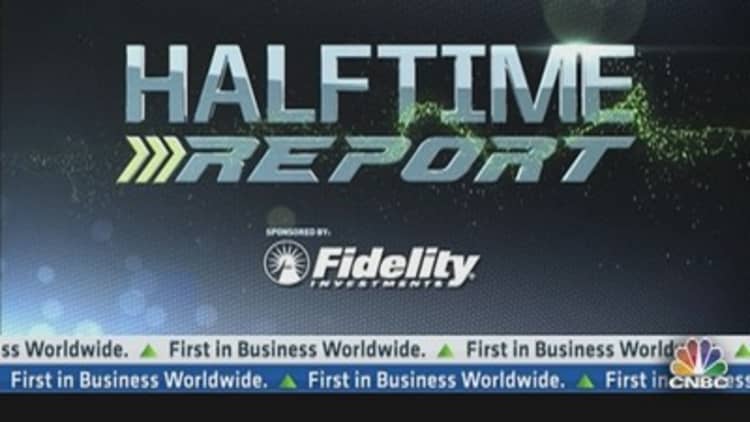
After a historic decline, market volatility really has no place else to go but up.
In the near-term that's probably bad news for stock prices, which have rallied in 2013 but likely are in for a rough ride over the next several weeks.
"We're likely to come into a period of volatility that would be parallel to the volatility we saw when all of a sudden it was realized we weren't going to get a deal on the 'fiscal cliff,'" said John Stoltzfus, chief market strategist at Oppenheimer. "Overall the market is poised this year to continue the process that we saw last year."
If that forecast sticks, 2013 will see a bumpy ride higher that gyrates according to the level of political discord in Washington. (Read More: McConnell, Pelosi Clash Over New Taxes in Fiscal Fight)
Most market experts attribute last week's 39 percent drop in the CBOE to a huge sigh of relief that the economy ended up not going over the fiscal cliff after all. Volatility rose late in the year when Washington technically missed the Dec. 31 deadline to get a deal done. The index has been moving higher so far this week.
The VIX, as it is known, is a popular measure used to gauge market fear by measuring options activity on the . A low reading is generally associated both with investor complacency and rising stock prices.
The cliff entailed a series of severe tax increases and spending cuts that were averted in a last-minute deal which halted immediate panic but left a string of nagging concerns that will be addressed over the next two months.
Warring political factions in the time ahead will be battling, among other things, over spending cuts after last week's tax increases.
More importantly, though, they'll be tangling over raising the nation's $16.4 trillion debt ceiling, which could be breached in another month or so. (Read More: US May Hit Debt Ceiling by Mid-February: Report)
Any snag in the nation's debt-dependent mode of operations could cause huge market headaches.
"All the parts of the can that were kicked out to March haven't been resolved yet," said Randy Frederick, managing director of active trading and derivatives at Charles Schwab. "The potential for at least as big a dispute if not greater happens again.
"As we approach that deadline we definitely could see some increase in volatility. These guys in Washington don't like each other, we know that. Most of them are digging their heels in already."
The stock market, then, could find the optimism following a temporary break in the debt battle to be ill-founded.
History suggests that huge drops in the VIX are followed by weak market performance.
In nine previous periods where the index has dropped more than 30 percent in five days, the average market return has been minus-1.51 percent, according to Bespoke Investment Group
Over the following month, the S&P 500 loses 0.27 percent and is flat on average over the next three months but with a median loss of 2 percent.
"Based on these prior periods, when option traders perceive there to be less risk in the market and let down their guard, investors should raise theirs," Bespoke CEO Paul Hickey said.
Art Cashin, director of floor operations for UBS, pointed out in a note that such dramatic VIX drops happen so rarely that "seeing it as a pattern holds some risk."
However, with the S&P 500 "clearly overbought...attention must be paid," he said.
The move occurs as Wall Street strategists are fiercely bullish for 2013, with many picking the market to reach new highs. (Read More: After the 'Apocalypse': What Investors Can Do Now)
While the overheated VIX selling of last week is causing some anticipation of a near-term stock market pullback, it is not affecting annual forecasts.
A market drop "would present another entry point, and we would see pullbacks from the current levels as opportunities to add positions at attractive prices," Stoltzfus said. "We don't think it's going to be a major pullback here, but the market has had a good run."
Stoltzfus advocates sector plays in consumer discretionary, materials, financials and information technology, while he sees stock-picking opportunities in energy and industrials.
"The market has been in a rally from June 1 (2012). There were also declines that occurred after that rally, but you had a low that was put in in mid-November," he said. "Testing is a process of a recovering market, and we think that we are in a major economic recovery process that reflects in the market and, net-net, offers opportunity for investors."


